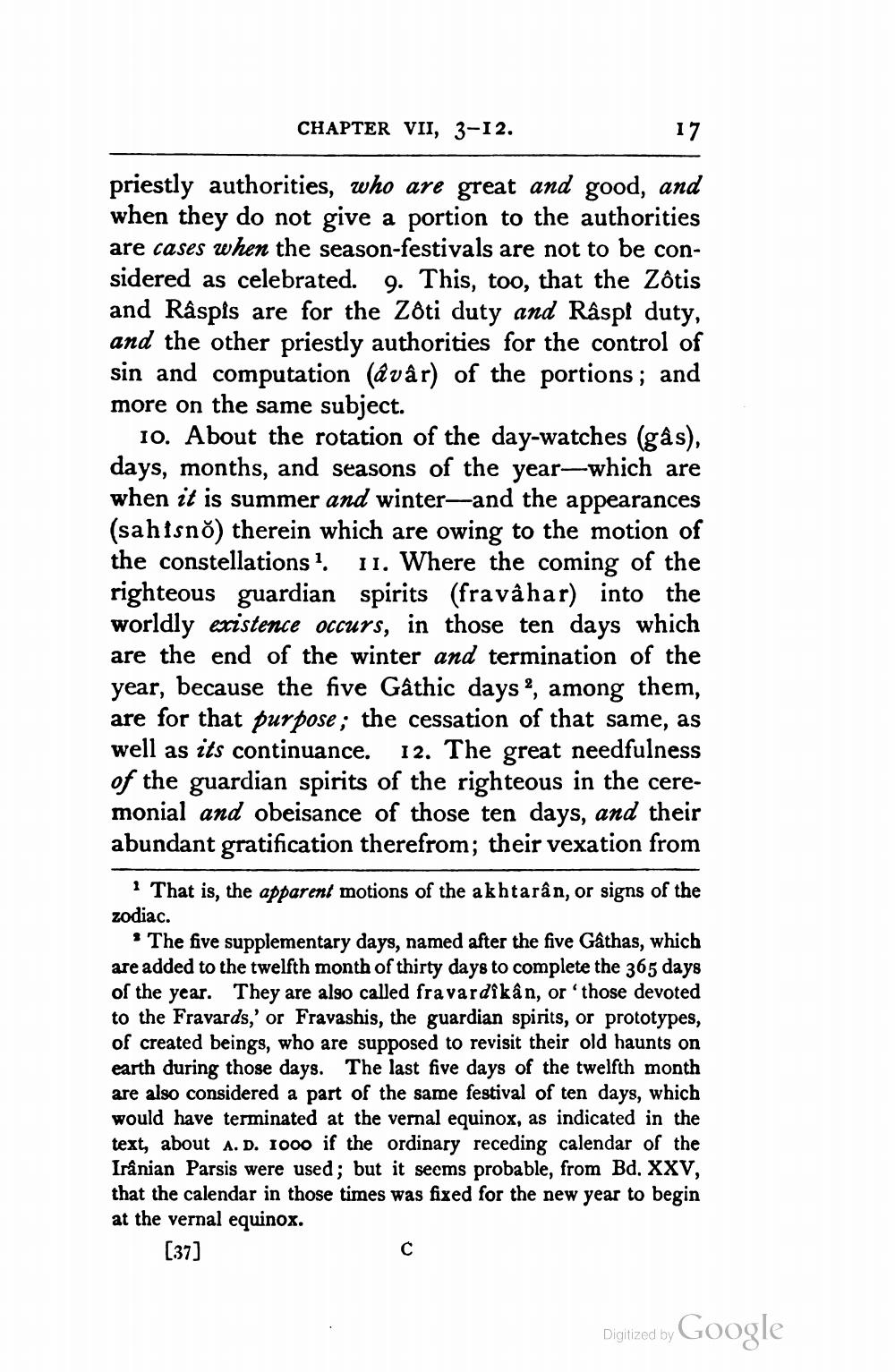________________
CHAPTER VII, 3-12.
17
priestly authorities, who are great and good, and when they do not give a portion to the authorities are cases when the season-festivals are not to be considered as celebrated. 9. This, too, that the Zôtis and Râspîs are for the Zôti duty and Râspf duty, and the other priestly authorities for the control of sin and computation (avâr) of the portions; and more on the same subject.
10. About the rotation of the day-watches (gas), days, months, and seasons of the year-which are when it is summer and winter-and the appearances (sahisno) therein which are owing to the motion of the constellations 1. 11. Where the coming of the righteous guardian spirits (fravâhar) into the worldly existence occurs, in those ten days which are the end of the winter and termination of the year, because the five Gâthic days, among them, are for that purpose; the cessation of that same, as well as its continuance. 12. The great needfulness of the guardian spirits of the righteous in the ceremonial and obeisance of those ten days, and their abundant gratification therefrom; their vexation from
1 That is, the apparent motions of the akhtarân, or signs of the zodiac.
* The five supplementary days, named after the five Gâthas, which are added to the twelfth month of thirty days to complete the 365 days of the year. They are also called fra vardîkân, or 'those devoted to the Fravards,' or Fravashis, the guardian spirits, or prototypes, of created beings, who are supposed to revisit their old haunts on earth during those days. The last five days of the twelfth month are also considered a part of the same festival of ten days, which would have terminated at the vernal equinox, as indicated in the text, about A. D. 1000 if the ordinary receding calendar of the Irânian Parsis were used; but it seems probable, from Bd. XXV, that the calendar in those times was fixed for the new year to begin at the vernal equinox.
[37]
C
Digitized by
Google




